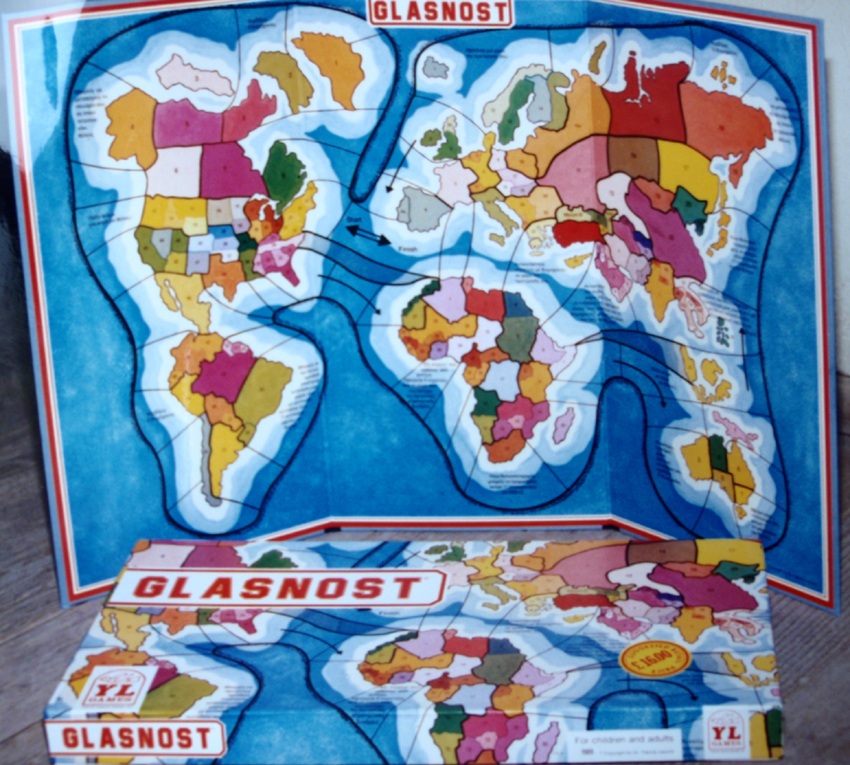How to play
Order
History
Album

|
Home
How to play Order History Album |

|
|
 Glasnost the gameTM is a strategy board game, produced by YL Games Ltd. It was invented by a Cypriot neuroscientist, Dr. Yiannis Laouris, with help and inspiration from his daughter Romina and his friend George Vakanas. Glasnost the gameTM is played on a board depicting a partly modified political map of the Earth, divided into 166 territories, which are grouped into five continents. Players begin with ownership of 25 industries and 25 armies. Industries represent economic power. Armies are used to colonize/capture adjacent countries or to apply political pressure in order to achieve disarming. Players attempt to colonize territories from other players. Once a player owes a territory, s/he may build industries inside that territory. In every round, industries produce armies, which eventually assist a player’s capacity to make wars and colonize territories. The ultimate goal of the game is to disarm the Earth. During the process of disarming, players earn credits. At any time, a player may unilaterally disarm any counry that belongs to him/her. When the whole Earth becomes demilitarized, the winner of the game is the player who earned the most points. Demilitarization is the only way to earn points. In the process of the game, it is necessary to negotiate disarming, colonize new countries and make wars with opponents. The game develops players’ abilities to conceptualize, evaluate and implement strategies of cooperation and aggression. The basic principles include: 1. Declaring war is the only way to colonize a territory 2. Nobody may ever attack a demilitarized country. 3. Disarming a country is irreversible and is the only way to earn points. A successful implementation of the game takes players from a phase in which agression and war is required in order to achieve greater control on earth, to a phase in which players compete in disarming countries. The name denotes the theoretical impossibility of achieving a state of worldwide peace without going through the devastasting experiences of war |